La Son Phu Tu Nguyen Thiep (1723 - 1804, Kim Song Truong commune, Can Loc, Ha Tinh ) is a person who directly talks a lot about the principles of "going out" and "going to work", both in his writings and in his stories. On the one hand, he does not deny the direction of "going out": becoming an official and practicing the religion. On the other hand, he highly values the way of "going out": living in seclusion and keeping the religion.
1. Confucian scholars are people who believe in Confucianism, value Confucianism, and pursue the “path of the clouds”: going to school, taking exams. Passing the exams: either becoming an official, taking on the responsibility of the country and society/ “going out” (“going out”); or retiring/ “going into hiding” (“hiding”)… For La Son Phu Tu Nguyen Thiep (1723-1804), his issues of “going out” and “going out” were much different from those of other Confucian scholars. That is why he became a very special phenomenon.
La Son Phu Tu Nguyen Thiep always showed the majesty of a talented teacher.
2. La Son Phu Tu talked a lot about the principles of "coming out" and "going out", both in his writings and compositions. In his poems, at least 15 times, he talked about the principles of "coming out" and "going out": Many heroes are born in this world/ Each person has an aspiration, no one is the same/ Some become officials and do good deeds, their merits shine throughout the world/ Some go into hiding and hide in a secret place, keeping their moral principles.
This can be seen as his “manifesto” about the aspirations of scholars. On the one hand, he did not deny the “outgoing” direction: going out to become an official and practice the way. On the other hand, he highly valued the “retreating” direction: going out to live in seclusion and upholding the way. Both directions must ensure the requirements: “Outgoing” - going out to become an official, must do good deeds, must contribute to worldly affairs; “Retreating” - going out to live in seclusion, must uphold morality and be responsible to life. Therefore: Depending on the opportunity, stretching or contracting is the right thing/ I will try my best to follow that way.
La Son Phu Tu was a man of few words, his words matched his actions, he could do what he said. He proactively chose the direction of "hiding" (hiding) right after passing the Huong Giai exam (1743), when the path to fame and fortune had begun to open up. And then, that intention became permanent, following him throughout his life. So, why couldn't he "break away" from the "going out" direction, still "stick" to "politics", still be an official (for at least 13 years)?
3. Following the journey of "going out" and "dealing" of La Son Phu Tu, we see that he is very steadfast and consistent with the point of view: "going out" or "dealing" both come from thorough contemplation of 3 conditions: 1, Circumstances that allow one's ability to truly contribute; 2, Faith in the "wise ruler" one chooses; 3, The trend of the times that one can sense.
In condition 1, he repeatedly stated the obstacles in his memorials, Hanh Am Ky as well as in his poetry. In conditions 2 and 3, few people dared to express their opinions like La Son Phu Tu. With Lord Trinh Sam, he refused to cooperate because he understood the Trinh dynasty's plot to usurp the throne.
As for Nguyen Hue, after 3 times of tactful refusal (the most basic reason was because he did not understand and needed to "investigate" the newly appeared "enlightened ruler"), he had to wait until April 1788, when he had enough necessary data, to accept the invitation, go down the mountain to meet; until the end of 1788, advising Nguyen Hue on the opportunity and plan to destroy the invading Qing army; from here, he collaborated effectively, becoming the military advisor of King Quang Trung. After King Quang Trung passed away, with King Canh Thinh and then Gia Long, he refused the invitation.
Notably, despite his wholehearted collaboration with King Quang Trung, La Son Phu Tu remained in seclusion. And he helped King Quang Trung do many difficult tasks: taking charge of the Sung Chinh Institute; translating many Confucian classics from Chinese to Nom; compiling books and teaching, implementing educational revival...
Panoramic view of La Son Phu Tu Nguyen Thiep's tomb on Bui Phong mountain (belonging to Thien Nhan mountain range, Nam Kim commune, Nam Dan, Nghe An ). Photo by Thien Vy
4. Near the end of his life, La Son Phu Tu revealed his thoughts summarizing many experiences: "In life, people's fortunes and misfortunes are like turning their hands. A gentleman knows his destiny but does not entrust it to fate", "Everything depends on himself"; "I write this memoir only to inform my fellow countrymen, those who are in trouble but do not know how to self-correct"; "I only worry about not being able to practice the path, not about not understanding it clearly" (Hanh Am Ky)... Those thoughts, along with all his writings, compositions, as well as his journey of awareness and activities of "exiting" and "dealing with", have many messages for posterity that are still hot and timely.
At the end of 1791, accepting the invitation of King Quang Trung, in Phu Xuan, La Son Phu Tu presented to the king a memorial discussing "Military Virtue", "People's Mind" and "Learning Law". Here, it is necessary to understand and know how to exploit the dialectic of values from the thoughts, discourses and practical activities of La Son Phu Tu, at least in the current hot issues.
First of all, it is the issue of valuing talents. This is related to the "seeking talents" of the "ruling" subject, but the core of the problem is that there must be the exact existence of the subject himself, the talented person. La Son Phu Tu himself is an example of the path of learning and the process of implementing ideas; of the sense of responsibility for the country and the people; of the effort to contribute to life in a useful way that he can. La Son Phu Tu is a person who resolutely refuses all favors of fame and profit; is willing to "give up his seat" in the luxurious and luxurious place, accepts "standing from afar" to "practice the way"; effectively resolves conflicts between "going out" and "doing things". Everything, as he said: "everything depends on oneself".
In both directions of “outgoing” and “dealing”, La Son Phu Tu was clear-headed and wise. His contributions to life in terms of ideology, knowledge, ability to predict and direction for building and reviving education have extremely profound and lasting meanings. Modern intellectuals can learn valuable lessons from him, from cultivating a life of self-reliance and creativity; choosing and implementing the direction of behavior that they have determined (any direction must be associated with the greater meaning, especially the rise and fall of the nation) to forming the personality, mettle, opinions, honor and position of a true intellectual.
Second, the issue of ethics and personality of the leader (dialectic from the issue of "Military Virtue" proposed by La Son Phu Tu). He once "carefully reported": the king must "do what to have virtue", "The king must devote himself to cultivating virtue, that is the root of all things". He advised the king to also study and determined: "Since ancient times, no sage has not had virtue without learning". This is also what Zen master Do Phap Thuan answered King Le Dai Hanh in a profound way in the 10th century about the long-term existence of the country requiring the king to know "no action", that is, to have virtue, to know how to gather all people, to understand the laws of all things and phenomena.
The persuasiveness of “seeking the wise” and using talented people also comes from here. King Quang Trung is such a case. What do modern leaders see from the message of urgency, sincerity, honesty, and patience to the end in “seeking the wise” and using talented people like King Quang Trung did to La Son Phu Tu?
Third, the issue of people's hearts and trust ("People's hearts") - the fundamental element that ensures the sustainability of every regime and every nation, because "People are the root of the country, only when the root is strong can the country be at peace". In his report to the king, on the one hand, he clearly presented the reality of people's lives at that time ("crop failure", "the destitute cannot cry out", "The state has more than enough military power but its grace has not yet been bestowed"; "the sound of sorrow and resentment echoes in the streets")...
La Son Phu Tu talks with King Quang Trung. Illustration from the Internet.
On the other hand, he earnestly hoped that the king would truly love the people; must be close to and understand the fate, circumstances and living standards of the people; must grasp the characteristics of the residents as well as the characteristics of each land of the people, from which to have appropriate policies on taxes, support, and rescue the people... Only then can the people's hearts be won. How to make the people believe and obey? The burning question and policies that La Son Phu Tu posed to Quang Trung are essentially also the requirements that need to be implemented and are heating up every day today.
Fourth, the issue of building and reviving education (dialectics from the realism of “Learning Law” of La Son Phu Tu). “Learning Law” is the method of learning - the way of learning - the method of learning, broadly speaking, the method of building and reviving education. This issue is not only presented in the memorial to the king but also in other types of discourses and practical activities of La Son Phu Tu.
Discussing "learning method", La Son Phu Tu focused on 5 contents:
- The foremost important role of "Learning the Dharma" in guiding and shaping human personality.- Criticizing the "public interest" learning method, which is not "True Learning", leading to unpredictable consequences ("The Lord is mediocre, I flatter, the country is destroyed, the family is ruined, those evils all come from there").
- The subjects and places of study need to be flexibly considered ("prefectural and district schools, teachers and students of private schools, children of writers, martial artists,... wherever is convenient to study").
- Content and sequence of teaching and learning ("According to Chu Tu. Before primary school... Progress sequentially, then to the Four Books, Five Classics, and History").
- Learning method (“Learn broadly, then summarize concisely, and apply what you learn and know”). In his poem, La Son Phu Tu also emphasized that learning must be in the direction of “essence” and reasoning: “Learning should not be trivial, but must know how to think broadly/ Books do not need to be numerous, but must be essential.”
In the five theses on "Learning Law" of La Son Phu Tu, except for the fourth thesis which is no longer suitable for today, the remaining four theses still have strong vitality and can be completely referenced and applied to serve the cause of "fundamental and comprehensive innovation in education and training" that we are carrying out.
La Son Phu Tu realized most of the "Learning Law" ideology and the desire to revive education: he translated a series of works from Chinese characters into Nom characters, implementing the policy of King Quang Trung: promoting Nom characters, making Nom characters the official script, preparing the essential conditions for the education and examination system in the direction of innovation... Unfortunately, after Quang Trung passed away, La Son Phu Tu's career had to stop. That was the pain, the tragedy of the nation and the era...
Associate Professor, Dr. Bien Minh Dien
(Vinh University)
Associate Professor, Dr. Bien Minh Dien
Source


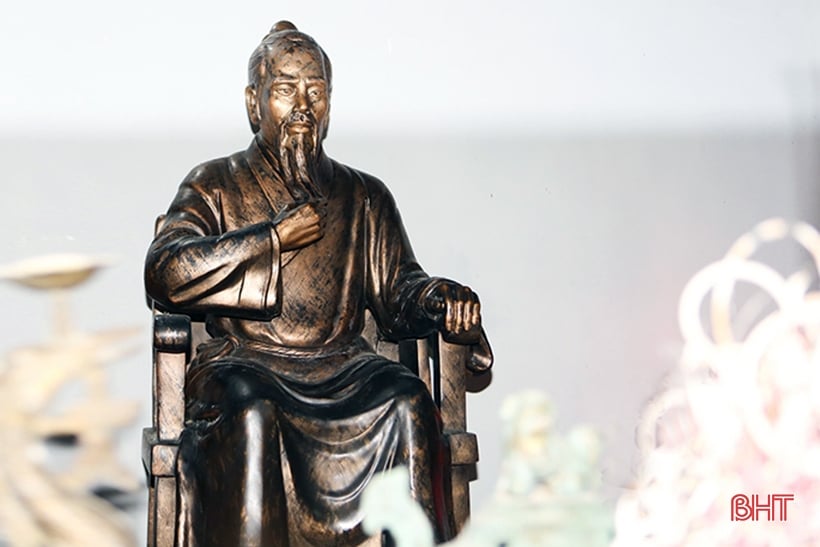
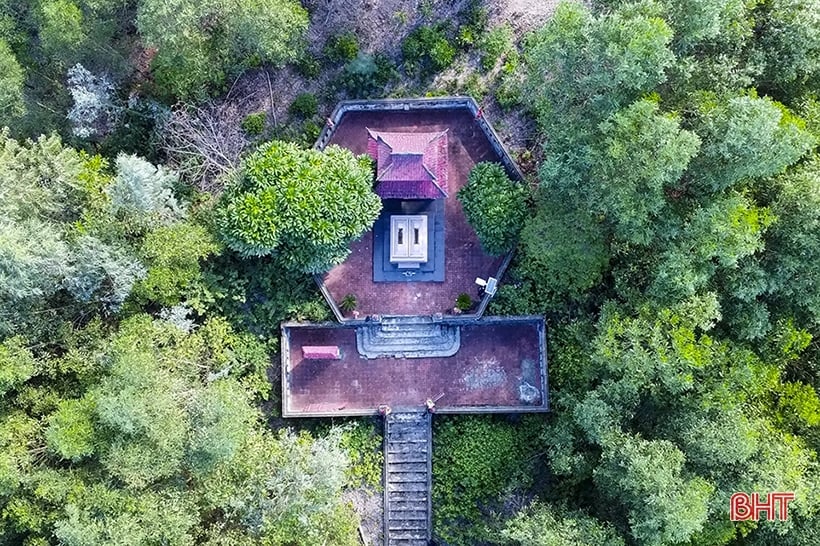
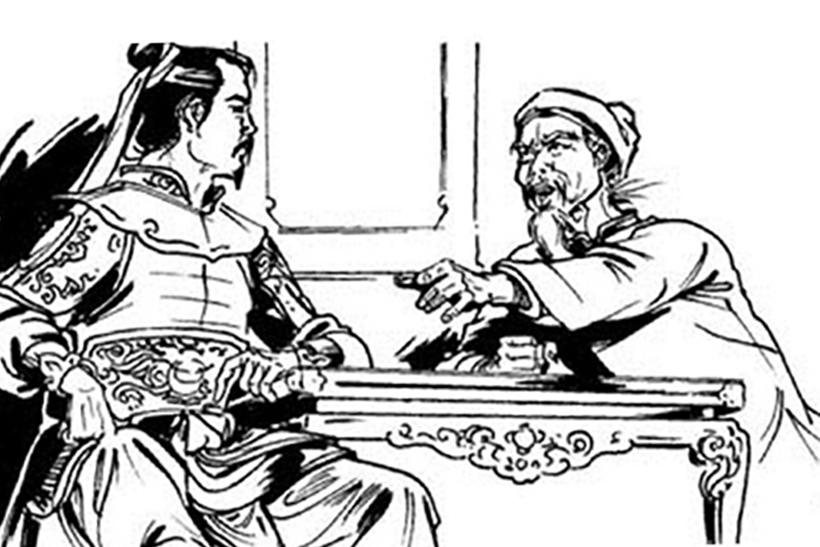
![[Photo] Hanoi morning of October 1: Prolonged flooding, people wade to work](https://vphoto.vietnam.vn/thumb/1200x675/vietnam/resource/IMAGE/2025/10/1/189be28938e3493fa26b2938efa2059e)
![[Photo] Keep your warehouse safe in all situations](https://vphoto.vietnam.vn/thumb/1200x675/vietnam/resource/IMAGE/2025/10/1/3eb4eceafe68497989865e7faa4e4d0e)


![[Photo] President of the Cuban National Assembly visits President Ho Chi Minh's Mausoleum](https://vphoto.vietnam.vn/thumb/1200x675/vietnam/resource/IMAGE/2025/10/1/39f1142310fc4dae9e3de4fcc9ac2ed0)



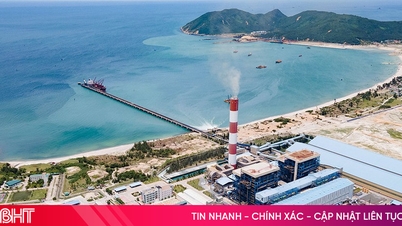




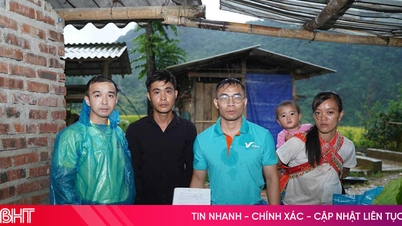



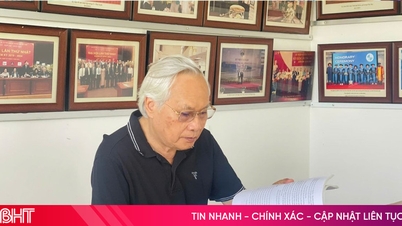






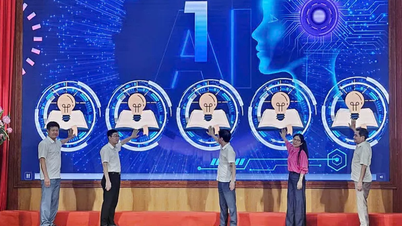

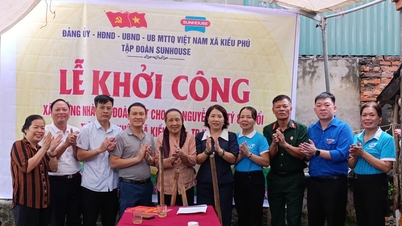
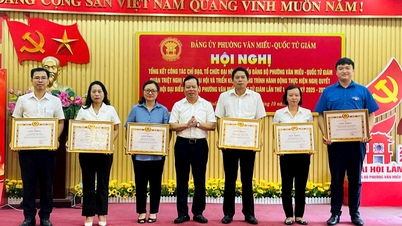
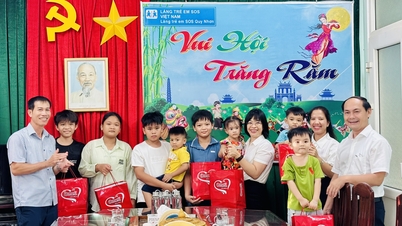

































































Comment (0)